Millersville University’s 41st Conference on the Holocaust & Genocide
Translating Trauma into Literature and Performing Arts
In testimonies of survivors, the Holocaust is sometimes described as taking place in a realm akin to a different planet. As Jonathan Freeland wrote recently, it was “a place where the usual laws of moral gravity did not apply; where evil was good, black was white, and night was day.” Therefore, the act of describing the Holocaust experience to subsequent generations resembles translating from a foreign language.
We are excited to invite you to a series of events that represent diverse approaches to this year’s theme: Translating Trauma into Literature and Performing Arts
“Translating Zuzanna Ginczanka” • a panel discussion and poetry reading
March 3,2026 • 7pm
McComsey Hall • Myers Auditorium
- A panel focused on the work and meteor-like life of the Polish-Jewish poet Zuzanna Ginczanka, who was executed by the Nazis in 1944. Three translators of the poet Dr. Joanna Trzeciak-Huss (Kent State University), Dr. Mira Rosenthal (Cal Poly) and Alex Braslavsky (Ph.D. candidate, Harvard University) will share their work and discuss the challenges of bringing this remarkable poet to English-speaking audiences.
-
Pre-panel workshop for teachers and teacher candidates “Echoes That Cannot Be Silent: Teaching the Holocaust through Poetry in Translation” led by Dr. Joanna Trzeciak-Huss, 5:30-6:30pm in Ford Atrium, McComsey Hall.
- Please see more details below
Alan & Linda Loss Keynote Lecture featuring Moisés Kaufman
March 19, 2026 • 7pm
Winter Visual & Performing Arts Center • Biemesderfer Hall
- Acclaimed director and playwright Moisés Kaufman will discuss his recent play “Here There Are Blueberries” as a form of translation of the Holocaust history. The event will include a dramatic reading of excerpts from the play, performed by Millersville University students.
"Translating Zuzanna Ginczanka” - A Panel Discussion and Poetry Reading
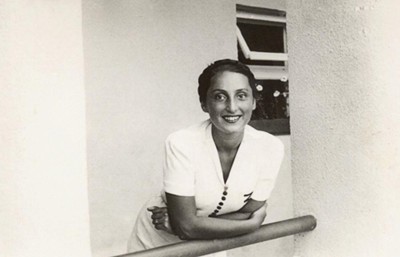 About the Poet - Zuzanna Ginczanka (1917-1944)
About the Poet - Zuzanna Ginczanka (1917-1944)
Zuzanna Ginczanka was born Zuzanna Polina Gincburg in Kiev to a Russian-speaking Jewish family. She grew up in Równe, then Poland, now Rivne, Ukraine. Though she chose Polish as her language of poetic expression, she remained stateless. Her sole collection, On Centaurs, was published in 1936. From 1939 to 1941 she lived in Lviv, then under Soviet occupation. Ginczanka spent the remaining war years writing while on the run. She was executed by the Nazis in 1944.
•About the Panelists•
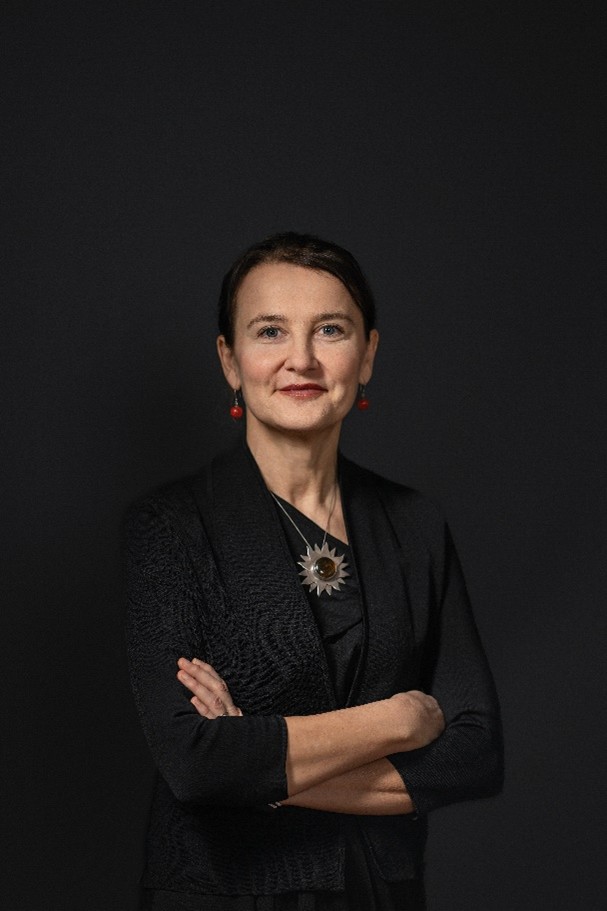 Joanna Trzeciak Huss is professor of translation studies at Kent State University. Her areas of specialization are 20th and 21st century Polish and Russian literature and translation theory. As an associate editor of The Polish Review, she has edited a special issue devoted to the Nobel Laureate Olga Tokarczuk. Joanna’s translations have appeared in The New York Times, The New Yorker, Times Literary Supplement, Harpers, The Atlantic, Paris Review, among others. Her books of poetry translation include Miracle Fair: Selected Poems of Wisława Szymborska (W.W. Norton) (winner of the Heldt Translation Prize) and Sobbing Superpower: Selected Poems of Tadeusz Różewicz (W.W. Norton) (shortlisted for the Griffin Poetry Prize). Awakening: Collected Poems of Zuzanna Ginczanka is forthcoming from Zephyr Press. Her poetry translations were included in Best Literary Translations for 2024 and 2025 (Deep Vellum).
Joanna Trzeciak Huss is professor of translation studies at Kent State University. Her areas of specialization are 20th and 21st century Polish and Russian literature and translation theory. As an associate editor of The Polish Review, she has edited a special issue devoted to the Nobel Laureate Olga Tokarczuk. Joanna’s translations have appeared in The New York Times, The New Yorker, Times Literary Supplement, Harpers, The Atlantic, Paris Review, among others. Her books of poetry translation include Miracle Fair: Selected Poems of Wisława Szymborska (W.W. Norton) (winner of the Heldt Translation Prize) and Sobbing Superpower: Selected Poems of Tadeusz Różewicz (W.W. Norton) (shortlisted for the Griffin Poetry Prize). Awakening: Collected Poems of Zuzanna Ginczanka is forthcoming from Zephyr Press. Her poetry translations were included in Best Literary Translations for 2024 and 2025 (Deep Vellum).
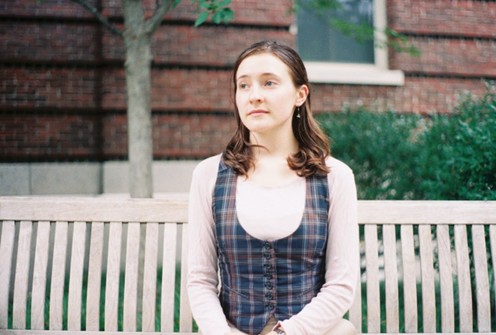 Alex Braslavsky is a translator, scholar, and poet. Her translated volume of Zuzanna Ginczanka’s poetry was released with World Poetry Books in 2023 and was shortlisted in 2024 for the American Literary Translators’ Association First Translation Prize. She is pursuing her Ph.D. in the Slavic Department at Harvard University, where she writes scholarship on Polish, Czech, and Russian poetry through a comparative poetics lens. For her dissertation work, Alex was named a 2025 Harvard Horizons Scholar. She is dissertating on the works of three nonagenarian women poets—Krystyna Miłobędzka, Elizaveta Mnatsakanova, and Bohumila Grögerová, whose poetry she is also translating. Her own poetry appears in Rhino and The Colorado Review among other journals. Her first chapbook Pinkyard will be released with Big Table Press in 2025.
Alex Braslavsky is a translator, scholar, and poet. Her translated volume of Zuzanna Ginczanka’s poetry was released with World Poetry Books in 2023 and was shortlisted in 2024 for the American Literary Translators’ Association First Translation Prize. She is pursuing her Ph.D. in the Slavic Department at Harvard University, where she writes scholarship on Polish, Czech, and Russian poetry through a comparative poetics lens. For her dissertation work, Alex was named a 2025 Harvard Horizons Scholar. She is dissertating on the works of three nonagenarian women poets—Krystyna Miłobędzka, Elizaveta Mnatsakanova, and Bohumila Grögerová, whose poetry she is also translating. Her own poetry appears in Rhino and The Colorado Review among other journals. Her first chapbook Pinkyard will be released with Big Table Press in 2025.
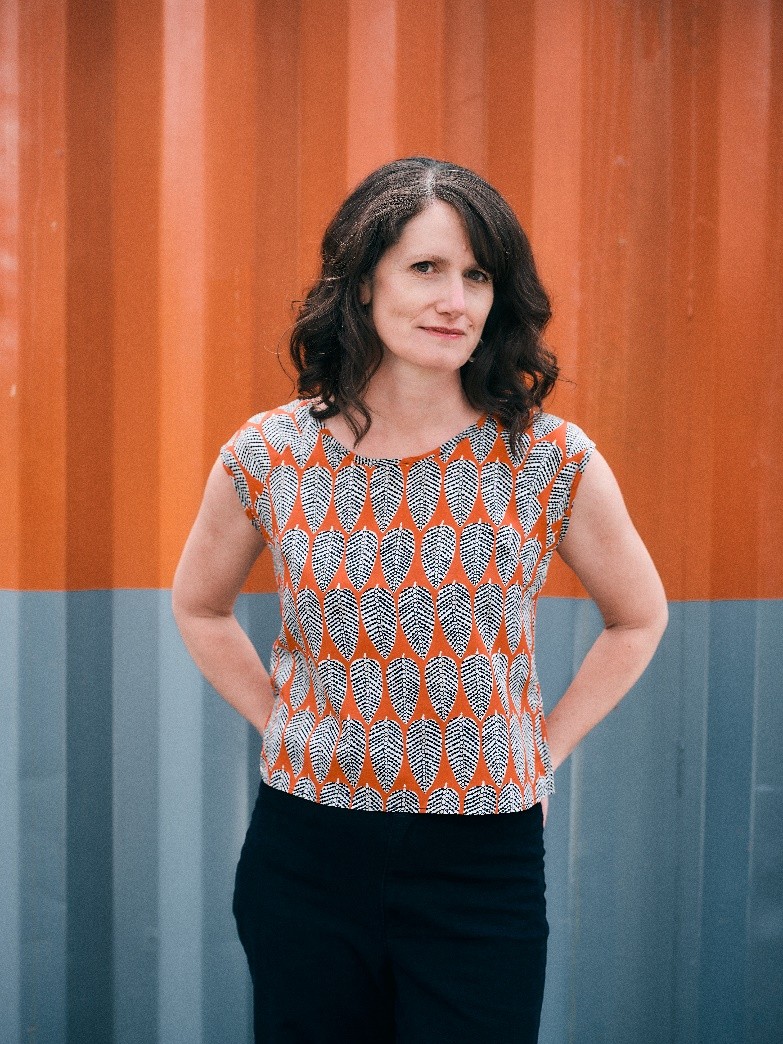 Mira Rosenthal is an American poet and translator of Polish-language writers. Her translation of Tomasz Różycki’s To the Letter won the PEN Award for Poetry in Translation. Her work has been nominated twice for the Griffin Poetry Prize as well as for the Derek Walcott Prize, the National Translation Award, and the Oxford Weidenfeld Translation Prize. She is the author of Territorial, a Pitt Poetry Series selection and finalist for the INDIES Book of the Year award, and The Local World, winner of the Wick Poetry Prize. Her essays, poems, and translations appear regularly in such journals as Poetry, The New York Review of Books, Ploughshares, Threepenny Review and others. She has taught creative writing, literature, and translation at various universities, including as a Distinguished Visiting Writer at Cornell College and as a Fulbright Scholar at Jagiellonian University in Kraków, Poland. She is Professor of Creative Writing at Cal Poly.
Mira Rosenthal is an American poet and translator of Polish-language writers. Her translation of Tomasz Różycki’s To the Letter won the PEN Award for Poetry in Translation. Her work has been nominated twice for the Griffin Poetry Prize as well as for the Derek Walcott Prize, the National Translation Award, and the Oxford Weidenfeld Translation Prize. She is the author of Territorial, a Pitt Poetry Series selection and finalist for the INDIES Book of the Year award, and The Local World, winner of the Wick Poetry Prize. Her essays, poems, and translations appear regularly in such journals as Poetry, The New York Review of Books, Ploughshares, Threepenny Review and others. She has taught creative writing, literature, and translation at various universities, including as a Distinguished Visiting Writer at Cornell College and as a Fulbright Scholar at Jagiellonian University in Kraków, Poland. She is Professor of Creative Writing at Cal Poly.
Alan & Linda Loss Keynote Lecture featuring •
Moisés Kaufman
March 19, 2026 • 7pm
Winter Visual & Performing Arts Center • Biemesderfer Hall
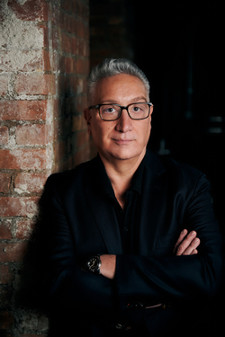
Moisés Kaufman is a Tony and Emmy-nominated director and playwright who received the National Medal of Arts from President Barack Obama in 2016. Broadway credits include Paradise Square (10 Tony Award nominations), Harvey Fierstein’s Torch Song, Bengal Tiger at the Baghdad Zoo with Robin Williams, The Heiress with Jessica Chastain, 33 Variations with Jane Fonda (wrote and directed, Tony nomination Best Play), and Doug Wright’s I Am My Own Wife (Tony Award). Other productions include: Pulitzer Prize finalist Here There Are Blueberries, Velour: A Drag Spectacular, Las Aventuras de Juan Planchard, Seven Deadly Sins (Drama Desk Award). He is the co-writer of The Laramie Project and the writer of Gross Indecency: The Three Trials of Oscar Wilde. He’s an Obie and Drama Desk award winner and a Guggenheim fellow.
Committee Members:
Committee Chair – Dr. Kasia Jakubiak (English and World Languages Dept.)
Miriam Baumgartner (Jewish Community Alliance of Lancaster)
Dr. Sarah Brooks (Educational Foundations Dept.)
Dr. Victoria Khiterer (History Dept.)
Barry Kornhauser (Office of Visual and Performing Arts)
Rabbi Jack Paskoff (Congregation Shaarai Shomayim)
Vicki Zuckerman (Community Representative)